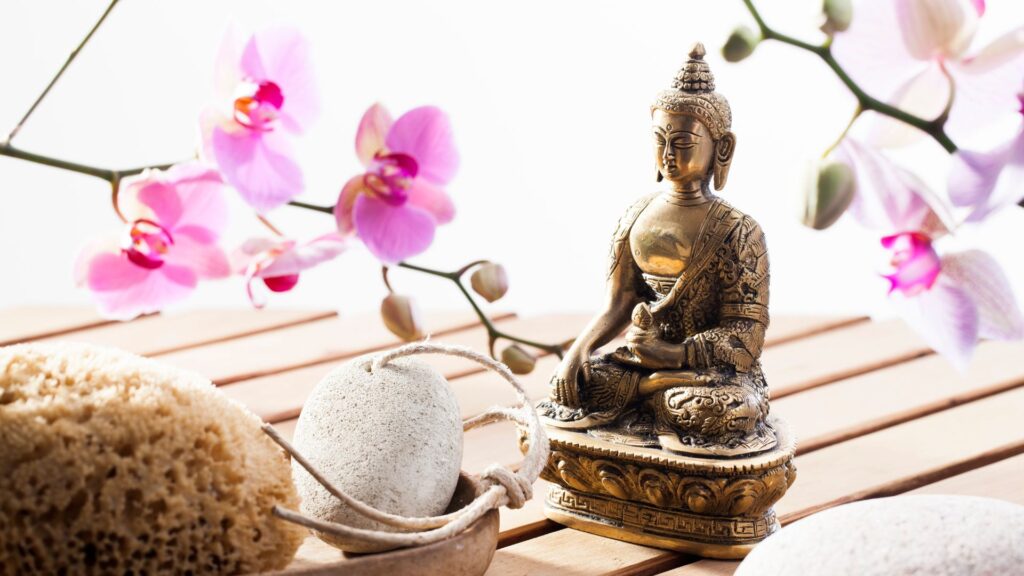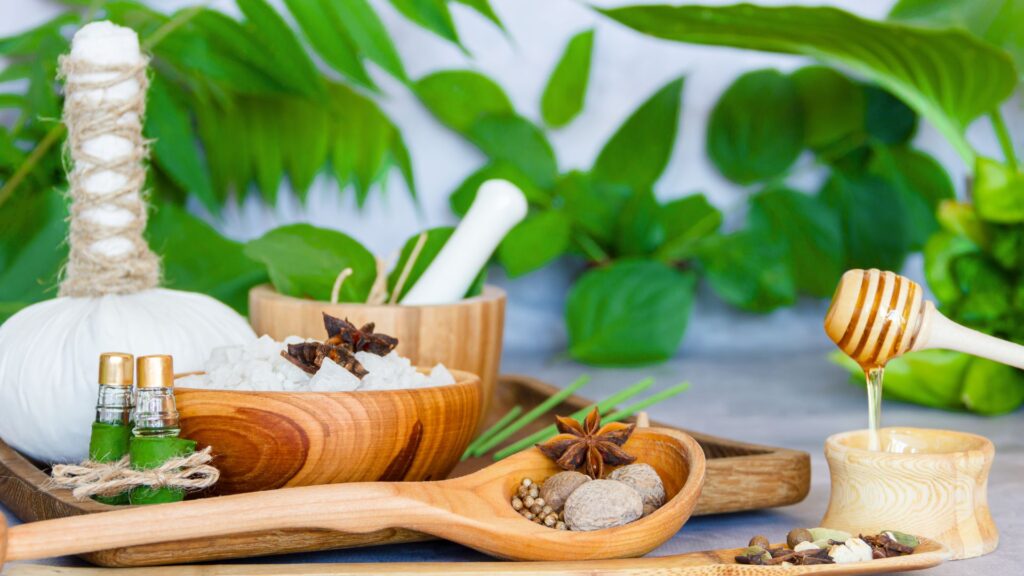
There are millions of pathogens and pollutants in our environment that are capable of causing diseases. Bad air quality poses a significant threat to human health, manifesting in various detrimental ways. It may trigger respiratory complications such as asthma, bronchitis, and chronic obstructive pulmonary disease (COPD) and can be the root cause of many other diseases.
Air purification is particularly significant because of its direct impact on Prana, the vital life force in Ayurveda. Prana is believed to be present in the air we breathe and is responsible for sustaining life at both physical and energetic levels. When the air is polluted or impure, it can disrupt the flow of Prana in the body, leading to imbalances and eventually causing various health problems.
To handle this problem, we are installing air purifiers in our homes, offices, and cars. But do you know that Ayurveda also offers some good remedies to handle pollution and pathogens in the air by purifying air?
Let us see how we can purify our air naturally.
One such technique is ‘Dhoopana karma.’ In Ayurveda, “Dhoopana” refers to the practice of fumigation or smoke therapy, where various substances such as herbs, resins, seeds some parts of plants, or other aromatic materials are burned to produce smoke. Dried herbs like sage, neem leaves, or tulsi (holy basil), guggulu, vacha are often used. This smoke is believed to have therapeutic effects and is used to cleanse the air, purify the environment, and promote health and well-being. Dhoopana karma is often performed in Ayurvedic rituals, ceremonies, or treatments to create a healing atmosphere and to drive away negative energies or impurities. Burning dried herbs like sage, neem leaves, tulsi (Holy Basil), Hing, ajwain, sesame seeds (til), and camphor can help purify the air by releasing antimicrobial properties. Some minerals like Haritala and manashila may also be used for specific purposes. The herb mixture may be mixed with dry cow dung and ghee which acts as fuel.
The prepared herbs or substances are then burned, typically in a special vessel like a censer or a metal plate, allowing the smoke to rise. This smoke is what carries the aromatic compounds and medicinal properties into the air. The smoke is allowed to waft through the space that requires purification or treatment. This can be a room, a house, or even specific parts of the body in some therapeutic practices.
Dhoopana karma is believed to have several benefits, including purifying the air by eliminating harmful microorganisms and odors. Purified air helps in balancing the doshas (vata, pitta, and kapha) in the body and environment. It also helps in enhancing mental clarity, and concentration, and promotes relaxation and a sense of well-being. It might help in alleviating respiratory issues when specific herbs with respiratory benefits are used. It is also believed that Dhoopana karma can cleanse negative energies from a space, promoting positive energy flow and spiritual harmony.
Another way of air purification is by burning essential oils. Essential oils derived from plants such as eucalyptus, peppermint, and lavender are commonly used in Ayurvedic practices for air purification. These oils are believed to have natural antimicrobial, antiviral, and antifungal properties, which help to cleanse the air of impurities and pathogens. When diffused into the air, these oils can effectively neutralize airborne bacteria and viruses, and get rid of odors, thus creating a cleaner and healthier indoor environment. To get started, you’ll need an essential oil diffuser, which disperses the oil particles into the air. Fill the diffuser with water and add a few drops of your chosen essential oil. Turn on the diffuser and let it run for several hours to effectively purify the air.
Additionally, you can also create DIY room sprays by mixing essential oils with water in a spray bottle and misting it around your living or working area. You may also create your own potpourri using dried flowers, herbs, and a few drops of essential oils. Place it in bowls around your home to naturally freshen the air.

The Ayurveda system of medicine is highly integrated with nature. It acknowledges the benefits of certain plants in improving air quality through their ability to filter out pollutants. Tulsi, neem, snake plant, money plant, and aloe vera are recommended to be grown in houses for their air purification qualities. Placing purifying indoor plants strategically throughout your home can improve air quality naturally.
Another great way to purify air and cleanse negative energy is salt. Himalayan salt lamps are believed to emit negative ions, which can neutralize positive ions produced by electronic devices and pollutants in the air. While scientific evidence on their effectiveness is limited, many people find salt lamps beneficial for creating a soothing ambiance. Some people just place a bowl of salt in a corner of the house to purify the air.
Apart from these ayurveda believes in regular cleaning of surroundings to have clean air. Regular cleaning using natural substances like vinegar, baking soda, and herbal cleaners can help remove dust, mold, and other allergens from surfaces, contributing to cleaner indoor air. Ayurveda emphasizes the importance of fresh air circulation in living spaces. Opening windows and doors to allow fresh air to flow in, particularly during early morning and evening hours, helps to remove stagnant air and rejuvenate the atmosphere indoors.
Along with the purification of air, it is also important to clean and purify your lungs with Pranayama practice every day. Pranayama, or yogic breathing exercises, are integral to Ayurveda and can help purify the respiratory system. Practices like Kapalabhati (skull-shining breath) and Nadi Shodhana (alternate nostril breathing) can clear the nasal passages, increase lung capacity, and promote overall respiratory health.
Following an Ayurvedic diet that emphasizes fresh, seasonal fruits and vegetables, whole grains, and herbs can support overall health, including respiratory health. Avoiding processed foods and incorporating immune-boosting herbs and spices like turmeric, ginger, and black pepper can help strengthen the body’s natural defenses against pollutants.
To summarize, air purification holds significant importance in Ayurveda as it is intricately linked to the maintenance of Prana, the life force, and overall health. By adopting practices to purify the air we breathe, individuals can mitigate the harmful effects of pollution, enhance vitality, and promote holistic well-being according to Ayurvedic principles.